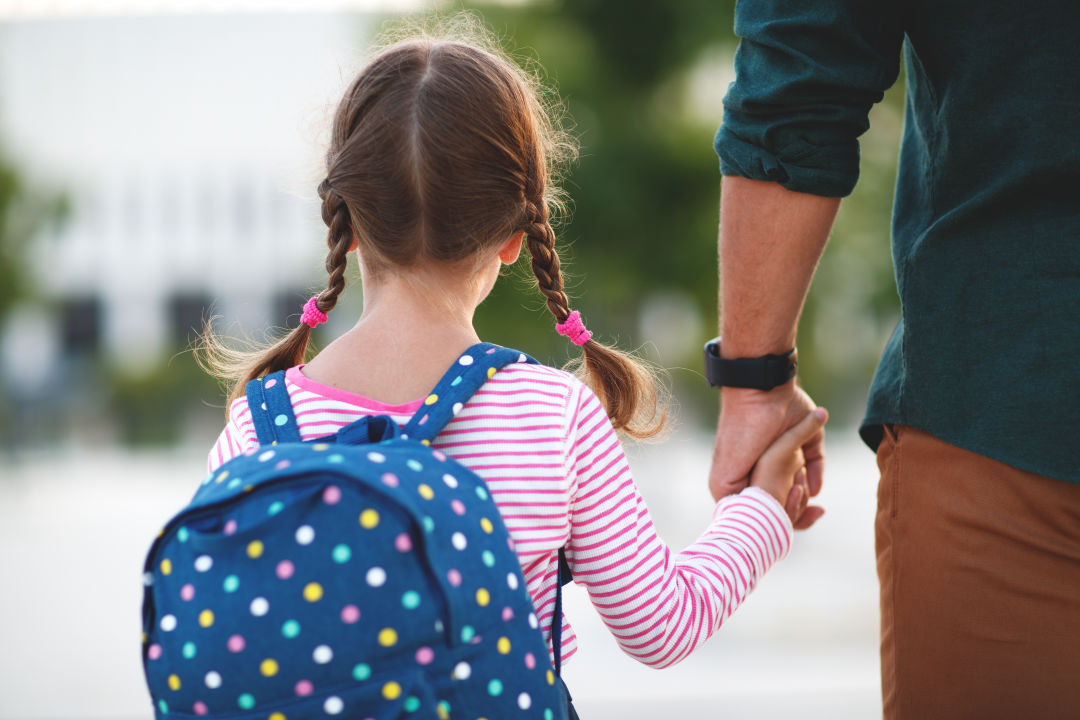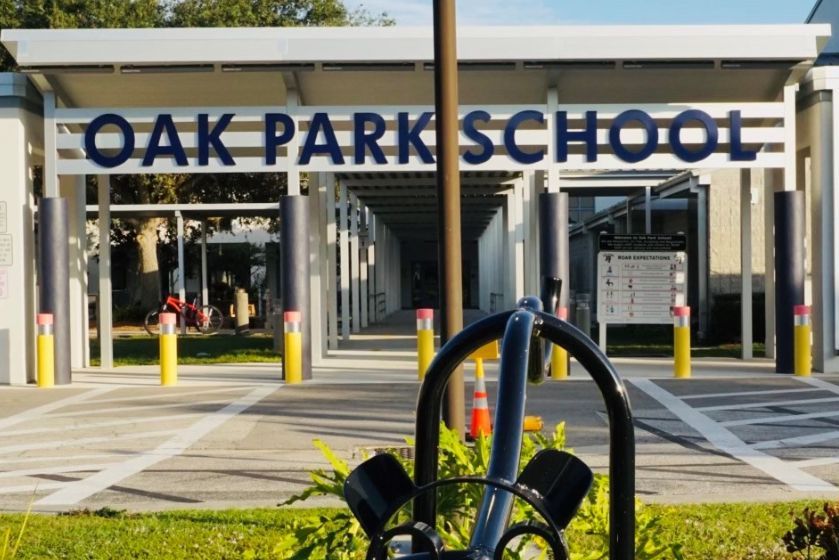How to Keep Kids Healthy During Back-to-School Season

Back-to-school season is a time for new school supplies, clothes and, unfortunately, germs. With the continuing Covid-19 pandemic, a rise of influenza A cases in our community over the summer and other airborne illnesses, it can be difficult to keep kids healthy through the fall.
First Physicians Group pediatrician Dr. Katherine Keeley recently offered us advice on how to keep kids healthy and happy this time of year, including getting check-ups, immunizations, mental health screenings and other at-school precautions. Here's what she had to say:
Get an annual physical.
"We are in the throes of back-to-school season, with lots of annual check-ups, which are really important for children," says Keeley. "It builds a sense of trust and continuity between child and doctor, which contributes to their care."
Keeley says annual physicals can help doctors assess changes and reevaluate treatment plans for medical conditions and is one of the best preventive measures parents can take.
Get vision and hearing exams.
"Pediatricians can measure visual acuity with one-second photographs, according to the American Academy of Pediatric guidelines," says Keeley. "We can also do expedited hearing exams, which have been a big help for children with trouble hearing the teacher and seeing the whiteboard."
Pediatricians can take these exams during annual physicals and refer children to ophthalmologists or audiologists, if needed.
Follow up on immunization guidelines.
Keeley says an important part of heading back to school is getting the required immunizations, according to Florida law and local guidelines. Older children who are going off to college will need separate vaccinations, too, for illnesses like meningitis and HPV. "Some colleges come up with requirements of their own, so check with your school," says Keeley.
"Some daycares even require vaccinations, which can all be determined at your annual physical," she adds. Common vaccination boosters for children going into kindergarten are DTaP (diptheria, tetanus and whooping cough), polio, MMR (measles, mumps and rubella), chicken pox and influenza.
Get a sports clearance exam.
"If you child is trying out for sports this school season, or they are already on a team, they may need to be cleared by a physician before they can play," says Keeley. "This screening will track body mass index, check for hernias that might affect their performance and scoliosis."
Some schools may need physicians to check for heart murmurs, as well, since undiagnosed heart conditions can become strained in athletics. Florida High School Athletic Association forms may require parents to inquire about more tests.
Check mental health.
Annual physicals are a great time for parents to express concerns they have about their child's emotional wellbeing. They can ask doctors about a child's diet and exercise patterns or drug or alcohol use in teenage patients and inquire about puberty or sexual health in older patients.
"We like to give teenagers the opportunity to speak with us privately if they wish," says Keeley.
Depression screening tests called PHQ-9s have overtaken vision tests in pediatric offices across the United States, according to Keeley. This opens up avenues for a conversation if children are unhappy at school or for other reasons. A list of mental health providers put together by Sarasota Memorial Hospital is given to patients who may need higher care.
"This has been a valuable tool for us, bringing to light a lot of things going on in a child's life," says Keeley.
Get vaccinated against Covid-19.
"During this era of Covid, we are advising vaccinations for children six months and older, and boosters as appropriate," says Keeley. "Based on the positivity rate in our community, we advise families right now that Covid precautions should be taken in schools."
Wear masks.
Keeley advises that children wear masks when going back to school if the community positivity rate is higher than 10 percent. She also advises social distancing in large crowds, to protect against Covid and other viruses.
Wash hands and keep spaces clean.
"Make sure children are washing their hands, clip hand sanitizers to their backpacks and wipe down desks, if possible," says Keeley. "Make sure kids also cough into their elbows."
Even beyond Covid, Keeley says our area has seen an aggressive viral summer. She saw an increase in respiratory syncytial virus (or RSV) and influenza A cases in her office. Both RSV and influenza A are often seen in winter.
"Because of this increase, and because Florida is the fourth highest state in Covid-19 cases, we'd like to see schools enact the safety plans that were in place in 2020," says Keeley. "We believe parts of the plan will be enacted in some capacity."
Take probiotics and elderberry.
Keeley always checks patients for diabetes and anemia at wellness visits. If patients' hemoglobin is low, she will suggest a multivitamin with iron. For immunity, however, she recommends a daily probiotic like Culturelle for digestive health and immune support.
Elderberry—a dark purple berry turned to syrup to treat colds—is also popular in her practice. She recommends elderberry gummies or syrup to patients who are in school or daycare to fortify their immune systems.
Keep children home if they are feeling sick.
In the past, sending your child to school with a runny nose or a tickle in their throat was considered no big deal. Now, Keeley recommends keeping children home from school if they are experiencing mild cold and flu symptoms—to protect the child, families and other kids.



